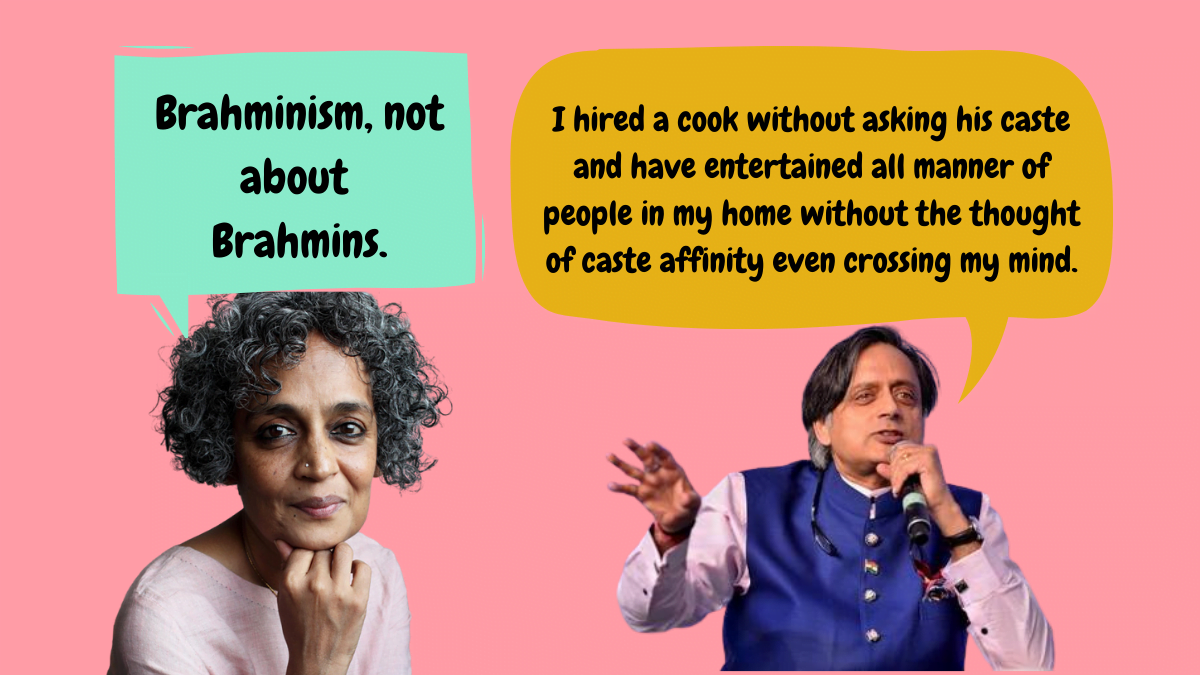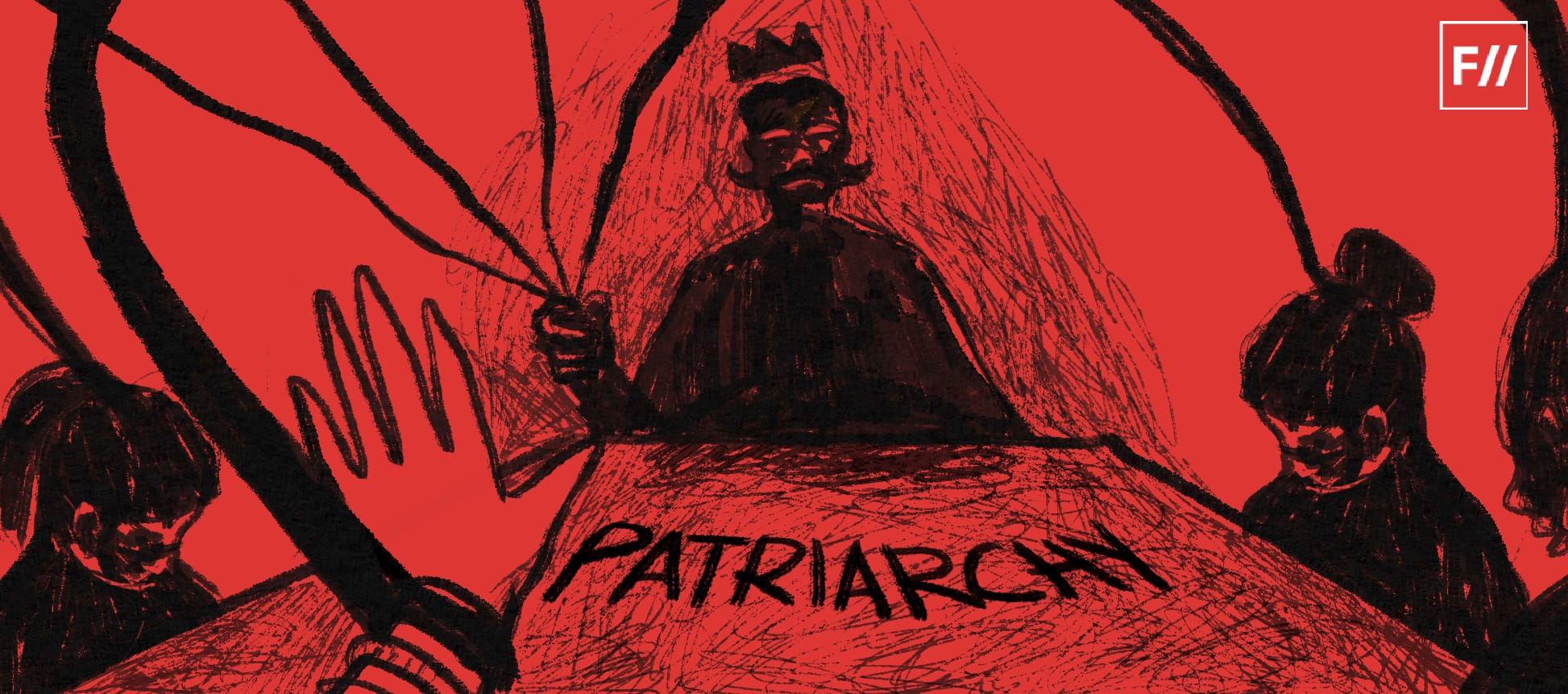The intellectual woke™ is no stranger to anyone who has been initiated into the ongoing discourse that revolves around marginalised identities and politics. The intellectual woke™ possesses a sizable (and often enviable) amount of knowledge on a wide range of subjects and is venerated by many. However, the archetypal intellectual woke™ tends to harbour a distinct set of characteristics that are tinted with problematic undertones.
Their larger-than-life persona which is fuelled by their ardent supporters embolden them to the extent of carving out a space for themself in movements that centre the marginalised. Unfortunately, they tend to be unmindful of their own social privilege and this arguably reflects itself best in the form of an unwavering saviour complex (if only their high-end liberal arts degrees could actually end oppression).
Quite often, they also deflect accountability by taking to virtue signalling subaltern voices both on and off social media. Nobody is as adept as them at parcelling their bigotry in flowery language and volumes of obscure theory. Furthermore, their politics is far removed from social reality and the narratives spun by them border on tone-deafness. Their liberal standpoint sometimes proves to be counterproductive—it further oppresses the groups that they seek to emancipate.
Their larger-than-life persona which is fuelled by their ardent supporters embolden them to the extent of carving out a space for themself in movements that centre the marginalised. Unfortunately, they tend to be unmindful of their own social privilege and this arguably reflects itself best in the form of an unwavering saviour complex (if only their high-end liberal arts degrees could actually end oppression).
The following listicle intends to serve as a how-to-sound-like-an-intellectual-divorced-from-social-reality toolkit. It is by no means exhaustive and by all means satirical.
Step 1: Glorify Capital Punishment
In your bid to express unconditional support to victims of sexual assault, pledge allegiance to the belief that increased policing, prosecution and imprisonment constitute the primary solution to violence against women and other gender minorities. Write eloquent tirades directed at perpetrators of violence which systematically otherise the perpetrators of violence and sideline the needs of the victims. Most importantly, do not let your attention waver to the discourse surrounding restorative justice—a theory emphasising the need to repair the harm caused by criminal behaviour.
Antithesis: As gratifying as the call for violent punishment to be meted out to rapists may sound in the moment, the argument is replete with flaws and lacks nuance. Legally mandated capital punishment, at best, sustains rape culture and is even likely to endanger the lives of potential and actual victims. Moreover, criminological data has proven that these punishments do not lower the rate of sexual violence. Restorative justice views crime as more than breaking the law. It causes palpable harm to people, relationships and the community. So a just response must not only address the wrongdoing, but also those harms.
Step 2: Display Your “Anti-Caste” Credentials Without Acknowledging Your Own Caste Privilege
As an intellectually inclined upper-caste individual, earning the “woke” badge from anti-caste activists is arguably one of the toughest and yet most rewarding things that you can aspire for. This is because the badge implies that you’re down with the historical fight against prejudice. Remember, the journey is going to be arduous. You are going to face a lot of obstacles on your way which may include but will not be limited to being called out by Dalits and Bahujans for misappropriation, and facing allegations of pandering to the Brahminical gaze. Pay no heed to them. Narrativise your lukewarm understanding of caste in a manner that will improve your public image. Do not forget to profit off of the labour of the marginalised as you attract attention and potential accolades towards yourself.
Arundhati Roy and Shashi Tharoor, widely acclaimed socio-political writers, fit almost too perfectly into this mould. In 2017, Shashi Tharoor’s alleged “anti-caste” credentials came to the fore. In their rebuttal to his article titled Why Caste Won’t Disappear From India, Tejaswini Tabhane writes, “For Tharoor, caste exists only in kitchens, marriages, dining, rituals, electoral politics and such things. But he fails to recognise that caste is both the base and superstructure of Indian society and that both the relations of power as well as the forces of production are mediated through it.”
As an intellectually inclined upper-caste individual, earning the “woke” badge from anti-caste activists is arguably one of the toughest and yet most rewarding things that you can aspire for. This is because the badge implies that you’re down with the historical fight against prejudice.
Dalit activists have been critical of Arundhati Roy’s introduction to Annihilation of Caste since it derails the conversation from Dr. B. R. Ambedkar’s essential work. She has also faced criticism for her attempts to dissociate herself from her Brahmin privilege.
Step 3: Indulge In The Erasure of Marginalised Communities When the Thought of Extending Allyship Makes You Uncomfortable
You recognise the fact that extending allyship can be difficult sometimes, especially if the marginalised group in question is unfamiliar to you. You always have the congenital need to always be right and cannot afford to flounder in your activism. The best way to simultaneously grapple with both these facts would be to limit the extension of your allyship only to those marginalised groups which seem palatable to you. You must add to the culture of systematically enriching the archives of politics with forced silences, absences and distortions. Tactfully ignore the negative implications that your actions might have on those who are worst affected by the intersections of their identities. If someone calls you out for it, make it personal and cancel them to get back at them!
A prime instance of this sort of half-baked allyship is the erasure of trans rights in the upper-caste LGBTQ+ narrative. Intellectuals on the interweb are tapping into this narrative for the purpose of bettering their own public image. They seem to firmly uphold the belief that the fight for queer rights is over with the decriminalisation of the section 377 of the Indian Penal Code. However, the Transgender Persons Act 2019 which threatens the lives, privacy and dignity of trans people escapes their purview.
Step 4: Practice The Expression of Selective Outrage
It is important to vent your angst in the face of injustice, but cherry pick incidents that are worth enraging about. Your biases determine the extent of your empathy gap. This further acts as a filter that specifically tells you where to channelise your empathy. Since your time and energy are limited, resort to selective outrage. Write profound articles expressing solidarity to victims of oppression in the western world while you wilfully neglect the state-sponsored violence targeted at India’s minorities.
Some issues simply won’t fit into your tailor-made activist agenda and that is alright. Keep in mind that the onus of condemning majoritarianism does not lie on you despite the fact that you constitute the majority. On the rare occasion that you are moved by atrocities targeted at minorities and wish to rally for them, disseminate under-researched or misleading content that is bound to be detrimental to their cause.
Also read: Being An Anti-Caste Ally: 5 Things To Keep In Mind
In the Indian context, selective public outcry and hollow activism are exhibited by intellectuals day in and day out. Indian upper-caste outrage against racism in the west which exists in tandem with their apathy towards minorities in the homeland is a recurring instance of selective outrage. “While ‘Black Lives Matter’ needs and deserves all the attention coming its way, the sudden outrage by India’s upper caste on this issue seems rather hypocritical, considering their long history of brutality against Dalits and Adivasis.”, writes Jahnavi Uppuleti for Firstpost.
Step 5: Police The Cultural Choices of Marginalised Communities by Promulgating Arguments That Lack Local Nuance
This is perhaps the easiest step to follow because it is bound to come naturally, especially when one has mastered the art of scrutinising the cultural choices of the “other” with a privileged lens. (Tone-deafness? What is that?) Advocate for a whitewashed version of veganism despite its incompatibility with India’s socio-politico-economic environment. Assume moral high ground for your consumption choices while overlooking the complicated intersections of caste and class that play a huge role in determining people’s food choice. The trick is to sanction for consumption what suits your taste and disparage what elicits your disgust, and back your standpoint with the works of white academics.
Also read: 4 Ways To Understand The Kashmir Conflict Better As An Ally
Nagaland’s dog meat ban drew the unparalleled support of mainland India—vegetarians and meat-eaters alike—since the consumption of dog meat was perceived to be ‘inhumane’ and ‘primitive’. Animal rights advocates further applauded the move without taking into account the irrational bias that premised their stance. The racist undertones that dictated the terms of the ban were glossed over. Alas, policing of food choices is not a new phenomenon in India. The Hindutva brigade that terrorises beef traders is a case in point.
Disclaimer: This is a satirical piece and does not encourage social discrimination and ignorance.
Featured Image Source: Feminism In India
About the author(s)
Kavin is an economics major. She can usually be found seeking contentment from her bookshelf and the occasional biriyani. Among other things, she has a soft spot for Chennai and misses the city whenever she's elsewhere.





The funniest part is there is no outrage regarding lynchings of Hindus ?